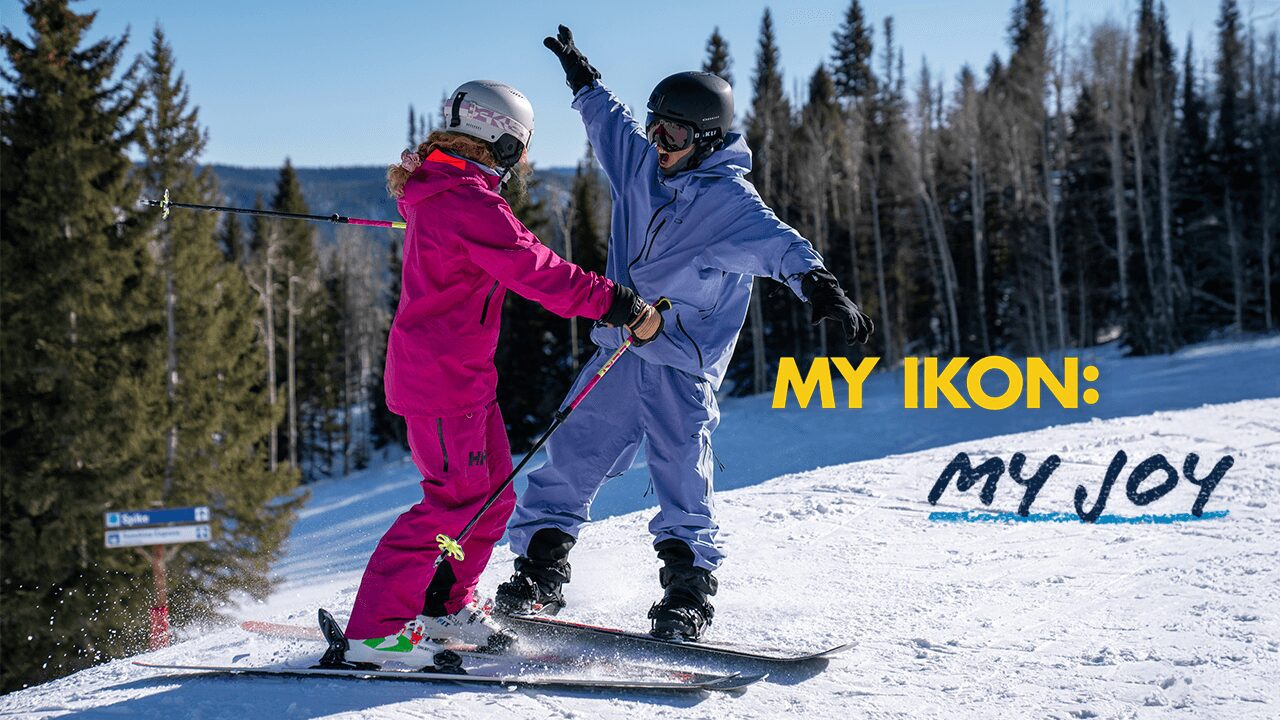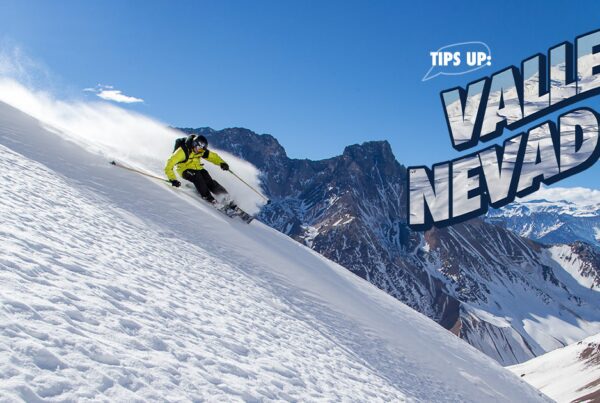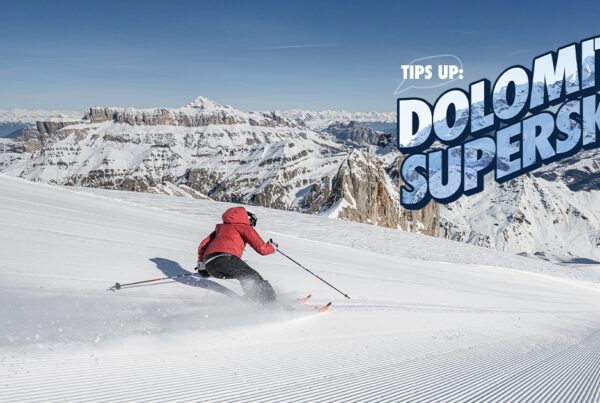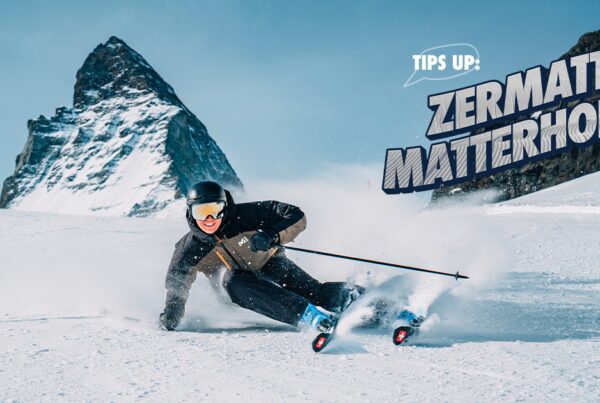A story about the science of joy,
in the mountains.
“When we’re outside and exercising, and when we’re with people we like, it’s this magic trifecta of all the things we care about… We know that this counteracts depression, can strengthen bonds.” – Florence Williams, author.
The feeling of sunshine and fresh air on your face, with corduroy or fresh snow underfoot, evokes a sensation, a smile, a memory for any skier or rider who’s had that “best day ever.” But, is it scientifically proven that skiing and snowboarding can create joy? According to neuroscience professors, a science & research journalist, a university research study, and professional athletes… the answer is yes.
”According to Merriam-Webster, joy is “the emotion evoked by well-being, success, or good fortune or by the prospect of possessing what one desires”
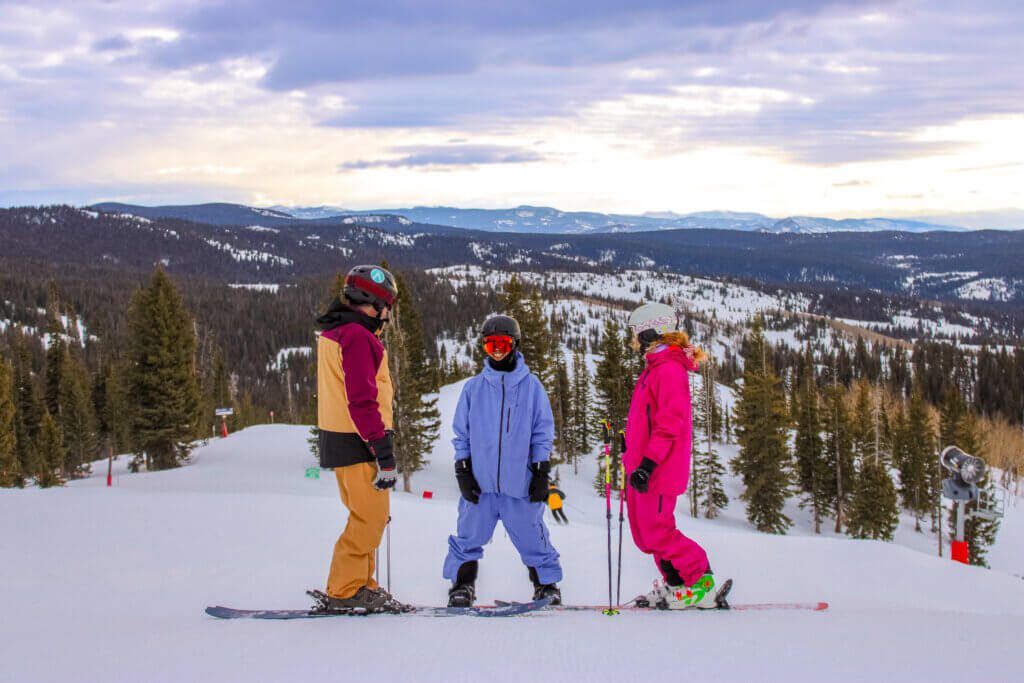
According to Merriam-Webster, joy is “the emotion evoked by well-being, success, or good fortune or by the prospect of possessing what one desires”. For skiers and riders, a day on the mountain is what one desires and what leads to a boost in well-being according to scientific research. A recent study conducted at Steamboat Resort by researchers at the University of Colorado will be published by the Positive Emotion & Psychopathy Lab. In this research, Professor June Gruber and graduate student Stevi Ibonie observed that “life satisfaction increased from pre-ski levels to post-ski levels” and “self-reported distress – including stress, anxiety, and depression – all significantly decreased from pre-ski to post-ski levels.” This groundbreaking study is proving that a few laps on the mountain can significantly improve one’s mindset.
New York-based neuroscientist & professor David Heeger is also a skier and relates the science behind the brain to the feelings and experiences of being on the mountain: “When you’re skiing, all the cylinders are firing. Adrenaline is being released. You have that rush of energy. And then you take a break on the chairlift. Your brain has these natural rhythms of waxing and waning, and that’s what helps stimulate the brain the strongest – those ups and downs. So the moment of relaxation on the chair not only gives your brain a rest, but it kind of fuels that natural rhythm of ups and downs. Subjectively, it is beautiful.”
”Even spending small amounts of time in fresh air, open spaces, or looking at natural landscapes can positively affect the brain.
While solitude and fresh air are calming, moments shared with others are also essential. When asked whether they prefer to ski & ride alone, professional athletes Yuki Kadono & Madison Ostergren both admitted that friendship and camaraderie is much of what makes their days on the mountain memorable. Previously roommates, Yuki & Madison are now good friends and their laughter on the mountain is infectious. While Yuki is donned in baggy snowboard gear, jumping off side hits to the amazement of guests, Madison wears a solid pink kit with red curls flying out of her helmet, laying down some of the deepest carves in the Rockies. Their differences on the mountain intersect in a Venn diagram of passion for snow, the outdoors, and a deep-rooted belief that mountains breed joy.
Originally from Japan, Yuki learned to speak English just five years ago and explains, “In snowboarding, people can feel that joy even if you don’t speak the same language. I couldn’t speak English… but snowboarding showed me my friends and how to connect. Snowboarding is a language. I don’t like to snowboard by myself because I like to share that feeling. It should be shared, those moments.”
Madison is an ex-ski racer but now focuses on big mountain adventures and says, “Skiing is best when it is shared with your friends and you’re just having a good time.” Regarding her joyful friendship with Yuki she says, “he just explodes like confetti!” But, skiing can also be shared with other people even if those people start as strangers: “I love having fun conversations with people on chairlifts, learning something new, and then off you go on your next run.”
”In snowboarding, people can feel that joy even if you don’t speak the same language. I couldn’t speak English… but snowboarding showed me my friends and how to connect. Snowboarding is a language.
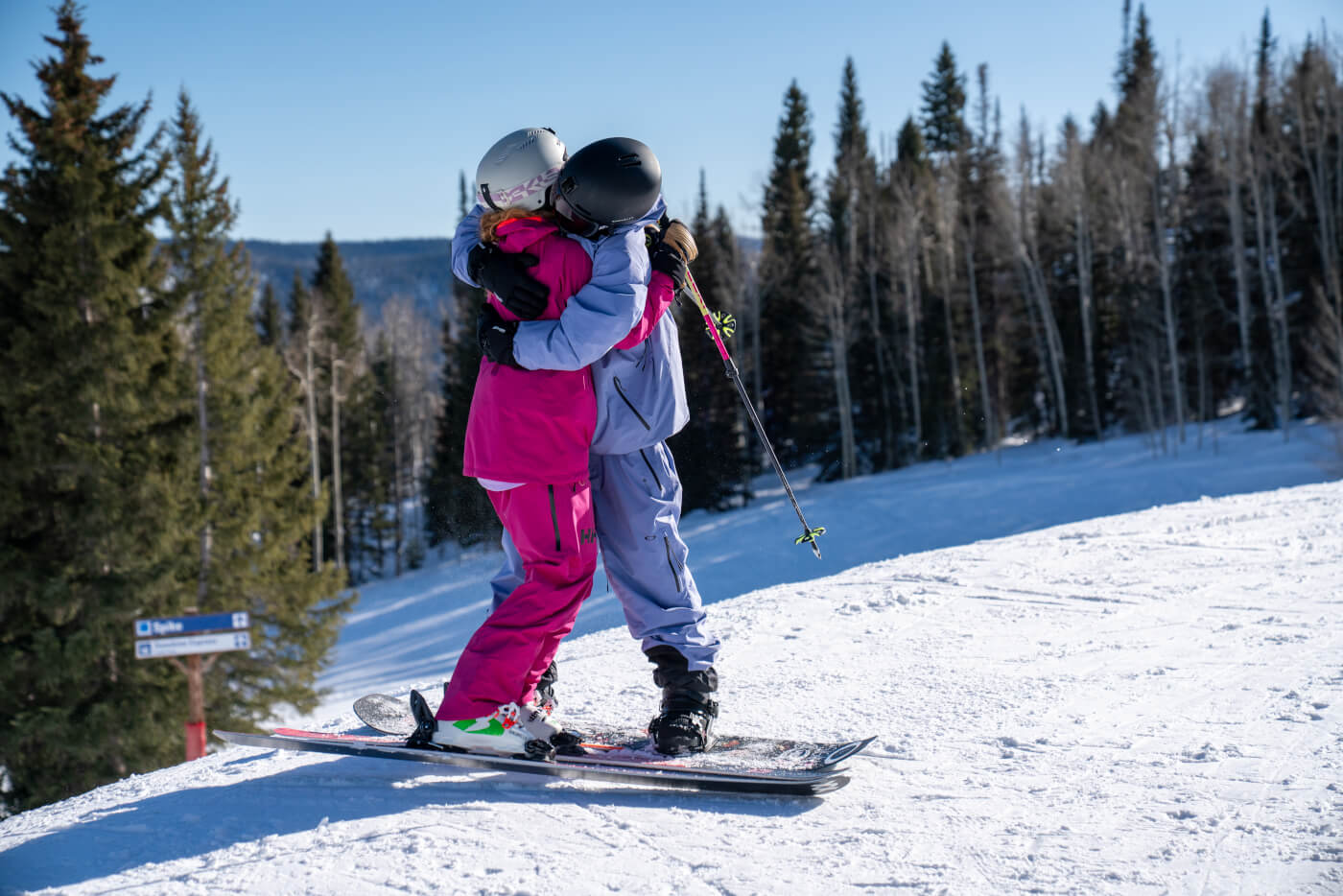
This beautiful, unfiltered happiness and joy doesn’t just come after a lifetime of skiing, but also for people learning to ski or ride. Spending any amount of time in fresh air, open spaces, or looking at the mountains can positively affect the brain. Dr. Gruber calls this state “reward-related circuits, [in] parts of the brain that neuroscientists refer to as the ventral striatum.” According to Dr. Heeger, learning or experiencing something new for about an hour a day, especially outdoors, can also challenge the brain to work differently and reward you with positive chemicals, whether the thing you are learning is brand new or an elevated skill. The brain is rewarded with dopamine, endorphins, and endogenous cannabinoids – including “anandamide.” Heeger explains that anandamide “is named after the Sanskrit word Ananda, which in Sanskrit means joy. So it’s the joy chemical and it’s made in your brain.”
Many have an insatiable desire to get outside, but there is also scientific proof that we become better versions of ourselves in the outdoors. Research and athlete experiences both demonstrate in unique ways that connecting to something bigger and naturally beautiful creates a sense of community, reduces stress, and infuses more joy into life.
This year, find more joy in the mountains.
Thank you, to the snow that brings us joy, to the mountains that welcome us back, and to the scientific proof that we should all spend more time outside.
In appreciation of the work that went into this project, Ikon Pass made a donation to the Trust for Public Land and the Positive Emotion & Psychopathy Lab Support Fund.
Watch the previous My Ikon videos here:
My Ikon: My Dad, 2018
My Ikon: My Girls, 2019
My Ikon: My Connection, 2021
My Ikon: My Ride, 2022
My Ikon: My Peak, 2023
My Ikon: My Lens, 2024

